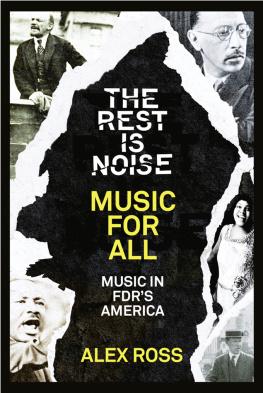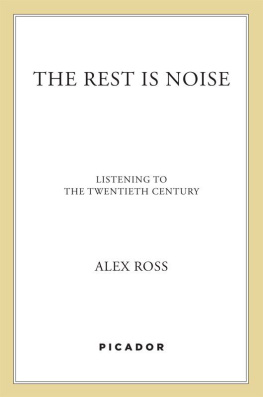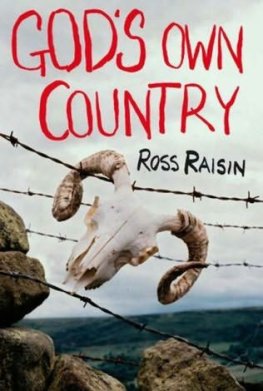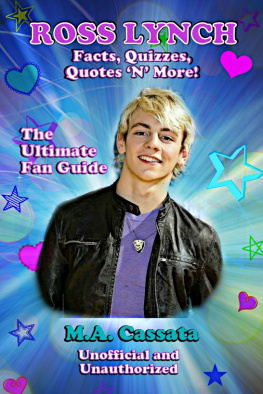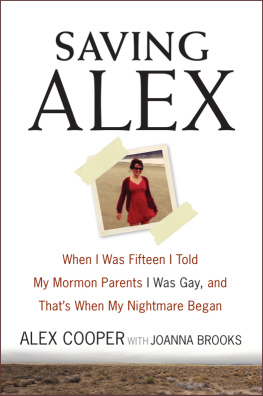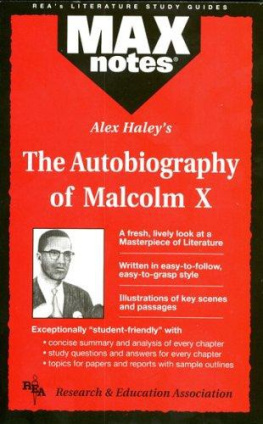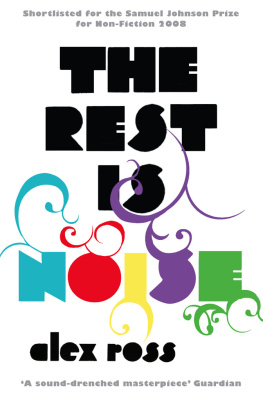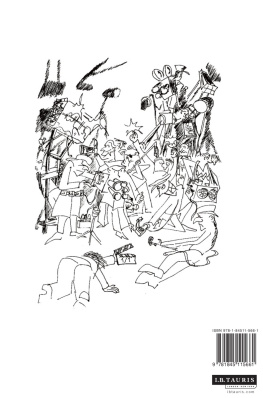Writing about music isnt especially difficult. Whoever coined the epigram Writing about music is like dancing about architecturethe statement has been attributed variously to Martin Mull, Steve Martin, and Elvis Costellowas muddying the waters. Certainly, music criticism is a curious and dubious science, its jargon ranging from the wooden (Beethovens Fifth begins with three Gs and an E-flat) to the purple (Beethovens Fifth begins with fate knocking at the door). But it is no more dubious than any other kind of criticism. Every art form fights the noose of verbal description. Writing about dance is like singing about architecture; writing about writing is like making buildings about ballet. There is a fog-enshrouded border past which language cannot go. An art critic can say of Mark Rothkos Orange and Yellow that it consists of an area of yellow paint floating above an area of orange paint, but what good does that do for someone who has never seen a Rothko? The literary critic can copy out a few lines from Wallace Stevenss Esthetique du Mal
And out of what sees and hears and out
Of what one feels, who could have thought to make
So many selves, so many sensuous worlds
but when you try to spell out the meaning of those lines, when you try to voice their silent music, another hopeless dance begins.
So why has the idea taken hold that there is something peculiarly inexpressible about music? The explanation may lie not in music but in ourselves. Since the mid-nineteenth century, audiences have routinelyadopted music as a sort of secular religion or spiritual politics, investing it with messages as urgent as they are vague. Beethovens symphonies promise political and personal freedom; Wagners operas inflame the imaginations of poets and demagogues; Stravinskys ballets release primal energies; the Beatles incite an uprising against ancient social mores. At any time in history there are a few composers and creative musicians who seem to hold the secrets of the age. Music cannot easily bear such burdens, and when we speak of its ineffability we are perhaps protecting it from our own inordinate demands. For even as we worship our musical idols we also force them to produce particular emotions on cue: a teenager blasts hip-hop to psych himself up; a middle-aged executive puts on a Bach CD to calm her nerves. Musicians find themselves, in a strange way, both enshrined and enslaved. In my writing on music, I try to demystify the art to some extent, dispel the hocus-pocus, while still respecting the boundless human complexity that gives it life.
Since 1996, Ive had the huge good fortune to serve as the music critic of The New Yorker. I was twenty-eight when I got the job, too young by any measure, but I strove to make the most of my luck. From the start, my editors encouraged me to take a wide view of the musical world: not simply to cover star performers at Carnegie Hall and the Metropolitan Opera but also to lurk in smaller spaces and listen for younger voices. Following my distinguished predecessors Andrew Porter and Paul Griffiths, Ive maintained that modern composers deserve the same lavish treatment that is given to canonical mastersa conviction that led to my first book, The Rest Is Noise: Listening to the Twentieth Century. Ive also periodically detoured into pop and rock, although, having grown up in classical music, I feel unsure of my footing outside it. In all, I approach music not as a self-sufficient sphere but as a way of knowing the world.
Listen to This combines various New Yorker articles, several of them substantially revised, with one long piece written for the occasion. The book begins with three aerial surveys of the musical landscape, encompassing both classical and pop terrain. The first chapter, from which the title comes, began as a preface to The Rest Is Noise, although I soon realized that it had to be a freestanding essay. It is a kind of memoir turned manifesto, and when it was published it elicited an unexpectedly strong response from readers, with hundreds of letters and e-mails arriving over several months. Many of these messages came from music students andrecent conservatory graduates who were struggling to reconcile the grand tradition in which they had been schooled with the pop culture in which they had come of age. The intense frustration that they and I feel in the face of the pince-nez stereotype of classical music runs throughout the book. The second chapter, Chacona, Lamento, Walking Blues, is the new thinga whirlwind history of music told through two or three recurring bass lines. Infernal Machines brings together various thoughts on the intersection of music and technology.
With a rough map in place, I follow the traces of a dozen or so musicians living and dead: composers, conductors, pianists, string quartets, rock bands, singer-songwriters, high-school band teachers. In the final section, I try in a more personal way to describe three radically different figuresBob Dylan, Lorraine Hunt Lieberson, and Johannes Brahmswho touch on things almost too deep for words. My last book unfolded on a big historical canvas, with political forces constantly threatening to overwhelm the solitary voice; this book is more intimate, more local, revisiting many times the abiding question of what music means to its creators and its listeners on the most elemental level. Above all, I want to know how a powerful personality can imprint itself on an inherently abstract mediumhow a brief sequence of notes or chords can take on the recognizable quirks of a person close at hand.
Maybe the only trait these musically possessed men and women have in common is that they are unlike one another or anyone else. Many are exiles, wanderers, restless searchers. A shy avant-garde Finn becomes a Los Angeles celebrity. An Icelandic singer dances her way through the streets of Salvador, Brazil. A Japanese pianist interprets the German repertory in the foothills of Vermont. An elder of rock and roll meanders across the land, deconstructing his hits. A great German composer traverses an inner landscape ravaged by sadness. One way or another, they unsettle whatever genre they inhabit, making the familiar strange.
The Great Soviet Encyclopedia, in one of its saner moments, defined music as a specific variant of the sound made by people. The difficult thing about music writing, in the end, is not to describe a sound but to describe a human being. Its tricky work, presumptuous in the case of the living and speculative in the case of the dead. Still, I hope to give a few lingering glimpses of all those sensuous selves.



